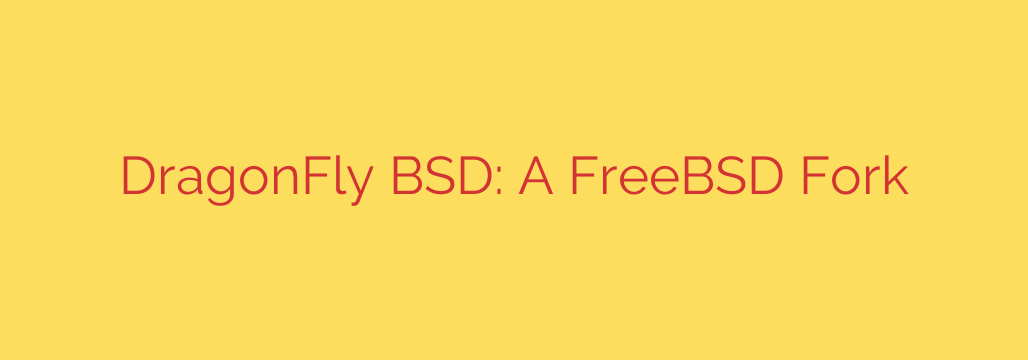
DragonFly BSD: A Different Path in the BSD World
For those familiar with open-source operating systems, the name BSD is often associated with robust, stable, and highly capable systems. While FreeBSD is perhaps the most widely known variant, the BSD family is diverse. One notable member that took a distinct direction is DragonFly BSD.
Born from the FreeBSD codebase in 2003, DragonFly BSD was initiated by Matthew Dillon. The project aimed to explore alternative design choices, particularly concerning concurrency and the kernel architecture, that were not easily achievable within the existing FreeBSD framework at the time. It wasn’t a simple fork meant to maintain compatibility but rather a deliberate effort to innovate and evolve the operating system core in new ways.
A key feature that sets DragonFly BSD apart is its unique HAMMER filesystem. Designed specifically for the needs of this operating system, HAMMER is a modern filesystem offering advanced capabilities such as snapshots, block-level checksumming for data integrity, and efficient handling of historical data. This contrasts with filesystems commonly used in other BSD systems. A successor, HAMMER2, further refines these concepts.
Beyond the filesystem, DragonFly BSD has focused on significant changes to the kernel messaging subsystem and lightweight kernel threads (LWKT). These changes were intended to improve performance and scalability, especially on multi-processor systems. The goal was to create a more dynamic and responsive kernel environment.
While it shares its heritage with FreeBSD, DragonFly BSD has diverged considerably over the years, developing its own tools, architecture, and community focus. It appeals to users and developers interested in exploring different operating system designs and leveraging its unique features like HAMMER.
In summary, DragonFly BSD is a significant player in the BSD landscape. It represents an ambitious project that forked from FreeBSD to pursue innovative kernel and filesystem designs, offering a powerful and distinct operating system experience.
Source: https://www.linuxlinks.com/dragonfly-bsd-unix-freebsd/








